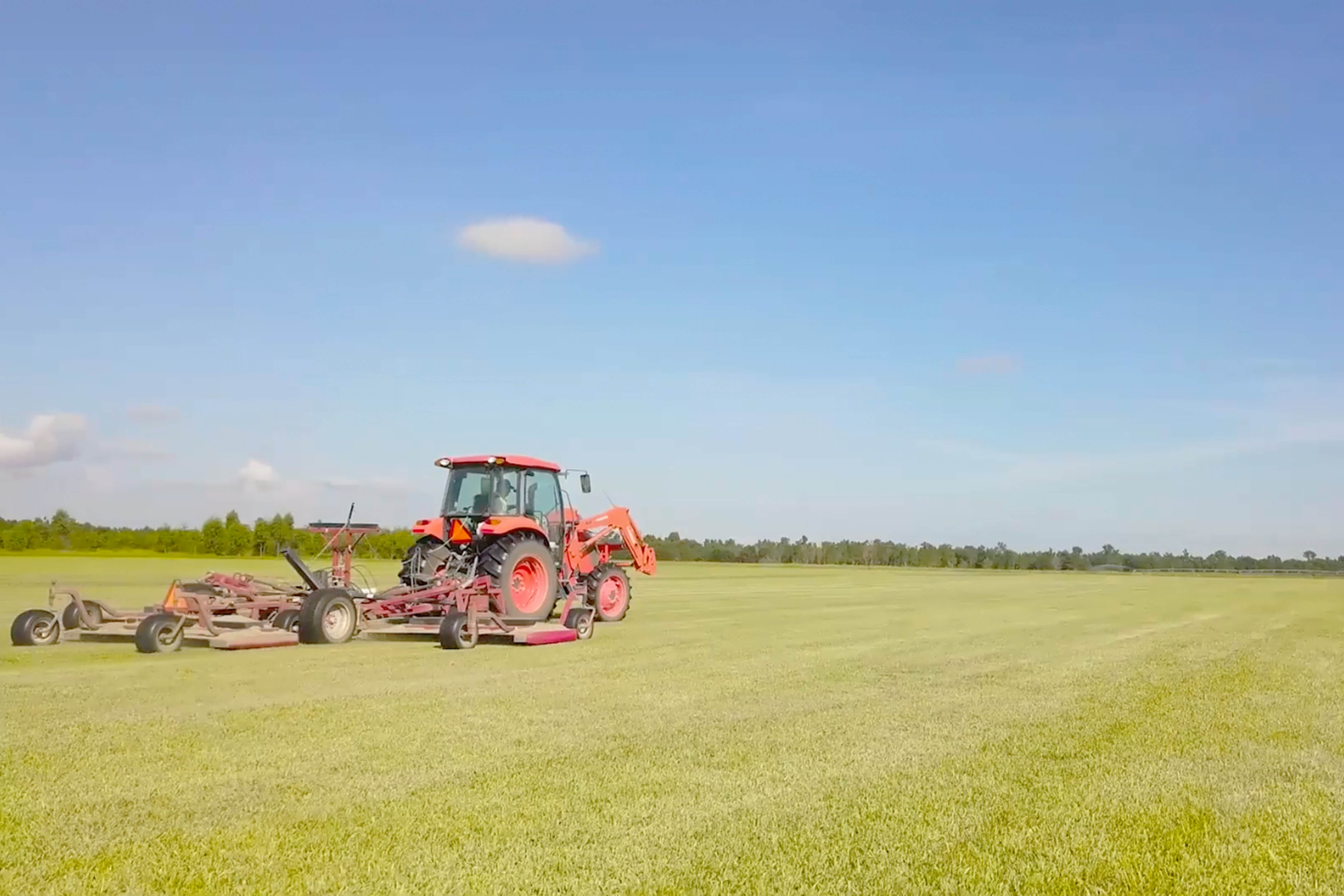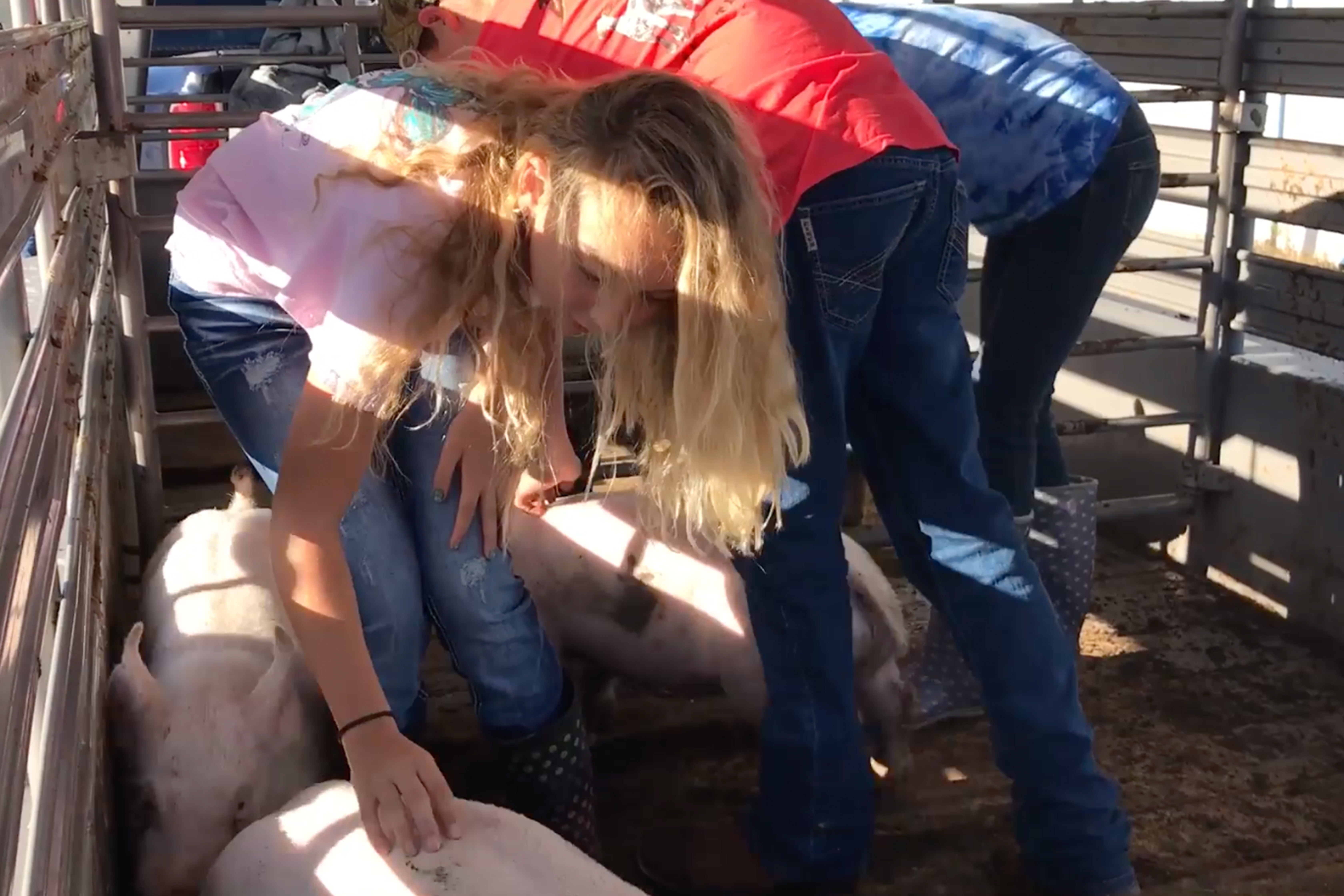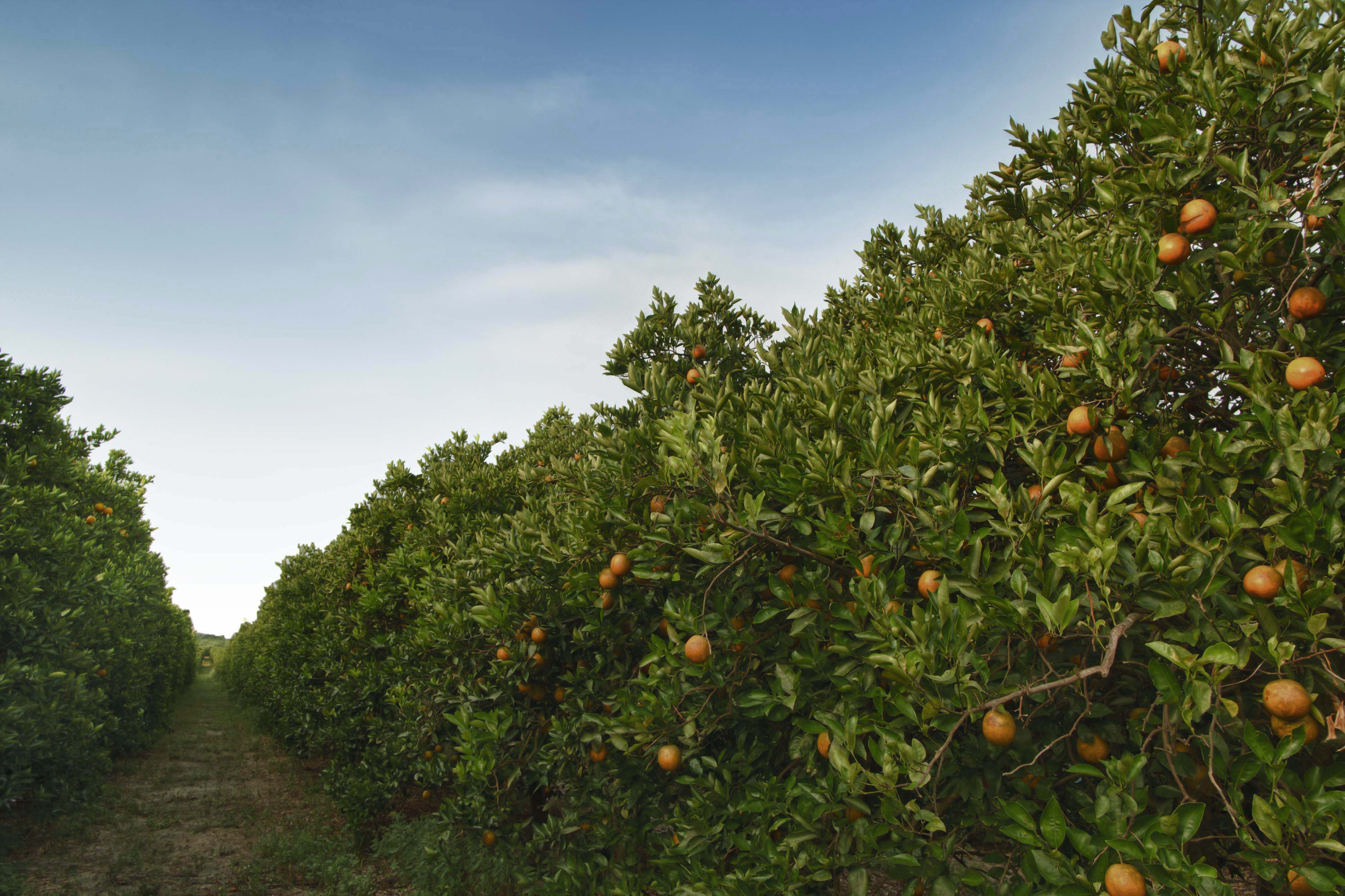Growing More Food on Existing Farmland
Phosphate is one of three vital crop nutrients used by farmers to maximize their crop yields; not just here in the U.S., but around the globe.
For Mosaic, helping the world grow the food it needs is more than a mission. It’s our calling.
From educating our customers and the community about modern growing practices to advocating for responsible nutrient management, we’re committed to utilizing sustainable, innovative techniques to grow more food on existing farmland. Read more about how our Phosphates team in Florida is pioneering new frontiers to help nourish local communities.
Phosphate & Farming
First Phosphate, Then Farming
Advanced methods developed by Mosaic’s Phosphates team in Florida to effectively return mined land to productive use ensures new farms are able to begin once a mining operation ends.
Thousands of acres of formerly mined land which traditionally have been reclaimed as pasture for cattle grazing are also being utilized for agricultural purposes, including planting and growing row crops, citrus and olive trees as well as sod farms.
In 2017 and 2018, Mosaic’s sod farm operation in Polk County was recognized by the Florida Farm Bureau as a CARES Farm. The County Alliance for Responsible Environmental Stewardship (CARES) program recognizes agricultural operations for their voluntary use of best management practices (BMPs).
Want to learn more about how we’re currently using formerly mined and reclaimed land in Florida for agricultural purposes? Find answers to some of the most frequently asked questions below.
Why are commercial fertilizers needed?
Without commercial fertilizers, the world’s crop yields would be cut in half. Plants need sufficient amounts of three nutrients — nitrogen, phosphorus and potassium – to grow. When farmers harvest, nutrients bound within the crops are removed from the field as well. To ensure nutrients for the next crop, farmers must replenish them by applying fertilizers to maintain higher crop yields. Commercial fertilizers are responsible for 40-60 percent of crop yields.
What role does phosphate play in plant growth?
Phosphate is essential for the general health and vigor of all plants. Some specific growth factors that have been associated with phosphorus are:
- Stimulated root development
- Increased stalk and stem strength
- Improved flower formation and seed production
- More uniform and earlier crop maturity
- Increased nitrogen N-fixing capacity for legumes
- Improvements in crop quality
- Increased resistance to plant diseases
- Supports development throughout entire life cycle
How does my county benefit from Mosaic's operation?
Mosaic’s Phosphate operation brings many benefits to the counties where we operate. In addition to the jobs provided, our operations in Florida generate substantial tax revenues for county governments, reducing the tax burden on other citizens. Most areas we mine were previously zoned for agricultural use and must be rezoned for mining. As a result of this rezoning, property tax revenue from the land increases by millions, providing benefits to local schools and governments.
Additionally, mining is a capital-intensive business and the millions that are invested in equipment at our mine sites generate significant amounts of tangible tax that provides a continual source of revenue to the county. In addition to these tax revenues, county governments receive a portion of the severance tax paid to the state on each ton of phosphate rock mined at our facilities. And, Mosaic strongly believes in investing in the communities where we operate, providing a significant boost to the efforts of local non-profits serving the community.
What began as an experiment on just five acres of reclaimed land has developed into a 300-acre operation that now yields commercially viable sod. Watch This Farm CARES highlight video featuring Land Operations Manager Tom Pospichal and the work he and his team are doing to manage Mosaic’s sod farm operation in Polk County.
Youth Agriculture
Preparing Future Generations to Meet the Challenge of Feeding a Growing Population
The global population is expected to reach an estimated 9.8 billion people by 2050. To help meet this challenge, Mosaic’s Phosphates team in Florida participates in a variety of agricultural education partnerships and initiatives with organizations like the National Future Farmers of America (FFA) and 4-H to help prepare future farmers for leadership and career success.
Our partnership with the FFA is just one example of how we’re helping provide new pathways to modern farming practices for students that extends beyond planting and harvesting to also include opportunities in environmental science, biology, chemistry, engineering and even business management and ownership.
Want to learn more about how we’re supporting youth farming in Florida through agricultural education? Find answers to some of the most frequently asked questions below.
How does Mosaic work with students who participate in agriculture education programs?
In Florida, Mosaic supports local youth ag by participating in livestock sales during county fairs each year. Programs like this teach students in FFA and 4H valuable skills like responsibility, how to properly care for and raise animals and how to live off the land. Watch this short video to see the impact of Mosaic’s support on a local student.
How does Mosaic determine which student projects to support each year?
Students who apply to receive support for their ag education projects from Mosaic’s Phosphate team in Florida can do so by submitting a letter of request to the appropriate Mosaic representative for the county in which the student resides.
DeSoto
Heather Nedley Public Affairs Manager
Office: 863-263-3100
Heather.Nedley@mosaicco.com
Hillsborough
Nikki Foster Public Affairs Manager
Office: 813-775-2977
Nichelle.Foster@mosaicco.com
Hardee
Heather Nedley Public Affairs Manager
Office: 863-263-3100
Heather.Nedley@mosaicco.com
Manatee
Jackie Barron Public Affairs Manager
Office: 941-322-6811
Jackie.Barron@mosaicco.com
Polk
Callie Neslund Public Affairs Manager
Office: 863-844-5327
Callie.Neslund@mosaicco.com
What will happen to my project if Mosaic buys it?
Mosaic has donated thousands of pounds of meat to more than 20 local hunger-relief, community and youth organizations throughout our five-county region in Florida. In 2019, the company purchased 20,840 pounds of meat at local county fairs. It’s all been made possible because of the relationship we’ve built with youth farmers.
Participation in livestock sales is a valuable learning experience for Manatee County Florida 4-H students. Here, participants in the program are able to acquire skills like responsibility, proper care and raising of animals and how to live off the land. Watch this video from the 2018 sale at the Manatee County fair.
Mosaic is a longtime participant in Polk County’s annual Agri-Fest event which offers interactive exhibits and hands-on workshops featuring the county’s major agricultural sectors, including citrus, cattle, aquaculture, horticulture, forestry, blueberries and phosphate as well as instruction on water conservation, a key issue for farmers and urbanites alike.
Education & Outreach
Helping Farmers Improve Efficiency
At Mosaic, we think it’s important to help farmers understand how fertilizer applications not only affect crop yields, but also the potential they have to affect our environment and water quality, too.
Here in Florida, our Phosphates team partners with numerous organizations to help educate growers about fertilizer best management practices through the 4R Nutrient Stewardship framework, which encourages application of the right fertilizer product, at the right rate, at right time, and in the right place.
It’s a farmer’s job to plan ahead. And Mosaic is planning with them by offering hands-on learning opportunities that not only result in better crop yields, but minimize environmental impact.
Want to learn more about how we’re promoting sustainable agricultural practices? Find answers to some of the most frequently asked questions below.
What is the 4R Nutrient Stewardship Framework all about?
This approach provides a science-based framework for plant nutrition management and sustained crop production, while considering specific individual farms’ needs.
Why is sustainable fertilizer use important?
Using fertilizer responsibly can help us grow more food. Because they are accountable for about half of the world’s crop yields, fertilizers are critically important to global food production systems—yet proper use is imperative. When applied appropriately, fertilizers boost yields and can mitigate potentially negative environmental impacts stemming from improper use. When applied in excess, phosphorus fertilizer is lost through surface run-off from rainfall events which not only wastes valuable farm resources, but can have a negative effect on surrounding watersheds.
Glen and Mark Beck manage a 7,500-acre citrus farm in central Florida. The farm was founded by their father, George, who was fertilizer operations manager at a local co-op, so the two learned firsthand the importance of fertilizers to efficient citrus production. Rob Watson works with the Beck brothers to develop annual fertilizer application recommendations that are aligned to 4R Nutrient Stewardship Practices.
Stay in touch by providing your email address or following Mosaic in your county.




